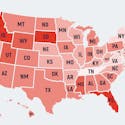ONLINE PHARMACIES

When it comes to hair loss treatments, Keeps vs Hims is the big battle. Find out who wins in 2024 for cost and service.

Our experts tell you everything you need to know about Hims services and products, as well as current deals.

Roman gives men online access to doctors and treatments for hair loss, ED, and more. But is Roman a good value?

BlueChew vs. Hims
Our expert guide will show you whether BlueChew or Hims is the right choice to tackle your ED in 2024.
Hims vs Roman
Trying to decide on Hims vs Roman? We break down all of the differences that aren’t always obvious.
Keeps Review: Do Keeps’ Hair Loss Treatments Work?
Our expert review of Keeps tells you everything you need to know about their hair loss treatments, pricing and service.
The Best Online Doctor in 2024
In 2024, the question has become, “Where is the best online doctor for me?” Our guide will help you decide.
Happy Head Reviews
Our 2024 reviews of Happy Head’s topical hair loss treatments help you discover if they’re worth your money.
Comprehensive Guide to Telehealth in 2024
Telehealth is a big part of our lives and your options can be overwhelming. Find out all about it with our 2024 guide.
Sesame Care Review: Affordable healthcare without insurance?
Our 2024 expert review of Sesame Care explores the service’s quality of care, cost, customer service, and more.
Lemonaid Health Reviews: Are Lemonaid’s medical services right for you?
Our expert 2024 review of Lemonaid Health helps you decide if its telemedicine services and doctors are right for you.
How To Prepare for a Virtual Doctor's Visit
It’s essential to prepare for a telehealth visit. Find out how to make the most of your virtual doctor’s appointment.
The 10 Best and 10 Worst States for Telehealth (According to Best Practices)
Find out the best and worst states for telehealth, based on findings in a recent study that quantitatively rates all 50 states across eight telehealth best practices.
Candid Review: Is Candid teeth straightening legit?
Our 2023 review explores Candid's entirely online teeth straightening treatments — aligners, retainers, and more.ONLINE THERAPY

Our 2024 expert review shares everything about BetterHelp online therapy, including quality, cost, and more.

Our expert analysis of BetterHelp vs Talkspace can help you choose the best online therapy option for you in 2024.

Our online therapy guide explores cost, quality of care, and usability to find the best platform for you.

Guide to Finding the Best Online Psychiatrist
We tested all of the major online psychiatry providers. This guide helps you find the best online psychiatrist in 2024.
Brightside Review: Effective online therapy and psychiatry?
In our 2024 expert review, find out if Brightside can help your anxiety and depression with talk therapy and medication.
Calmerry review: An affordable online therapy option?
With our 2024 reviews, find out if Calmerry’s online therapy subscriptions are a good value for you.
Cerebral Reviews: Do its online mental health care plans provide a solution for you?
Could Cerebral’s online therapy be your mental health solution? Our 2024 reviews share all of the pros and cons.
Regain Review: Best online relationship counseling in 2024?
Our 2024 review delves into the pros, cons, and details of Regain’s therapy for individuals and couples.
A Beginner’s Guide to Therapy Terminology
Having trouble making sense of therapy terminology? We'll demystify all of the qualifications, specialties and modalities.
Talkspace Review: Should you give its online therapy service a try?
Talkspace aims to provide affordable, high-quality therapy online. Our experts tested it and will tell you everything you need to know!
Mental Health Resources for Students
Our guide for child, teen, and young adult students includes mental health facts, tips, and resources.
Pride Counseling Review: Should you try this online LGBTQ+ counseling?
Learn all about online LGBTQ+ therapy at Pride Counseling with our 2023 review — cost, quality, messaging, and more.
How to Prepare for Your First Therapy Appointment
Prepare talking points, clear your schedule, set realistic goals, and decide on a comfortable wardrobe in preparation for your first therapy appointment.
Online Therapy Guide for LGBTQ+ Youth
Our guide can help you or a loved one find LGBTQ-friendly online therapy when you don’t know where to start.
What is Telepsychiatry?: A Guide to Getting Started
We explain what telepsychiatry is, who would benefit most from it, and help you decide if it's right for you.
Most Frequently Asked Questions About Online Therapy
A professional therapist with experience in online therapy joins us to answer your most frequently asked questions.
Getting the Most Out of Online Therapy
Based on testing and a therapist’s experience, here are the 8 tips to help you benefit the most from online therapy.RESOURCES

Germs and viruses are everywhere. Stay one step ahead with our guide on keeping yourself and others protected.

We surveyed 970 people to determine if our perceptions of the flu have changed since COVID-19 began.

Disaster can strike at any time. This guide will help you prepare for any emergency situation.

The Health Impacts of Racism
We investigate and explain how discrimination and racism impact the health outcomes of the BIPOC community.![Drug Safety at Music Festivals [2024]](https://innerbody.imgix.net/drug-safety-music-festival-main.jpg?auto=format&fit=crop&w=125&h=125&ixlib=react-9.4.0)
Drug Safety at Music Festivals [2024]
Our 2024 survey study covers drug use among music festival attendees and investigates their safety precautions.
Guide to Sexual Consent
Our guide to sexual consent covers its definition and importance, as well as sexual assault statistics.
How Politics Influence Dating Habits: Study
We surveyed 972 people to find out how politics influence our relationships and how we date across party lines.
Why Do Men Avoid Going to the Doctor? Experts Weigh in.
Why do men avoid the doctor? We asked doctors and psychologists, and we’ll share their perspective and advice.
Reasons Behind the Sunday Blues (and How You Can Fix It)
Our examination of the infamous Sunday blues can help you reclaim your weekend and start the week off right.
These states are the most vulnerable in a COVID-19 pandemic
Our research team dives deep into the latest government statistics and ranks each U.S. state based on vulnerability to a COVID-19 pandemic.VETERINARY

In our 2024 guide, find out which CBD oils, treats, chews, and balms are the best for dogs.

Vetster brings a vet into your living room whenever you need it. Learn the details in our 2024 reviews.

Our guide explores how to plan and prepare to keep your pets safe when disaster strikes.

CertaPet Reviews: Is CertaPet legit? Can it authorize your pet as an emotional support animal?
Learn if you can get a legitimate letter for your emotional support animal with our 2024 expert reviews of CertaPet.
Best Online Vet: Guide to Finding an Online Veterinarian for Your Pet
In our guide to online vet visits, find out what these vets can provide to best care for your pet from home.TELEHEALTH FOR HER

Our 2024 expert review of Wisp covers treatments, cost, convenience, and more, including discount codes.

Our experts tell you everything about Hers services and products, including current deals and discounts.

Should you give Nurx a try? Our expert reviews tell you everything you need to know about the company.

Breast Cancer Awareness: Mammograms
We surveyed 755 women to learn about mammogram and breast cancer prevention habits and where we can improve.








